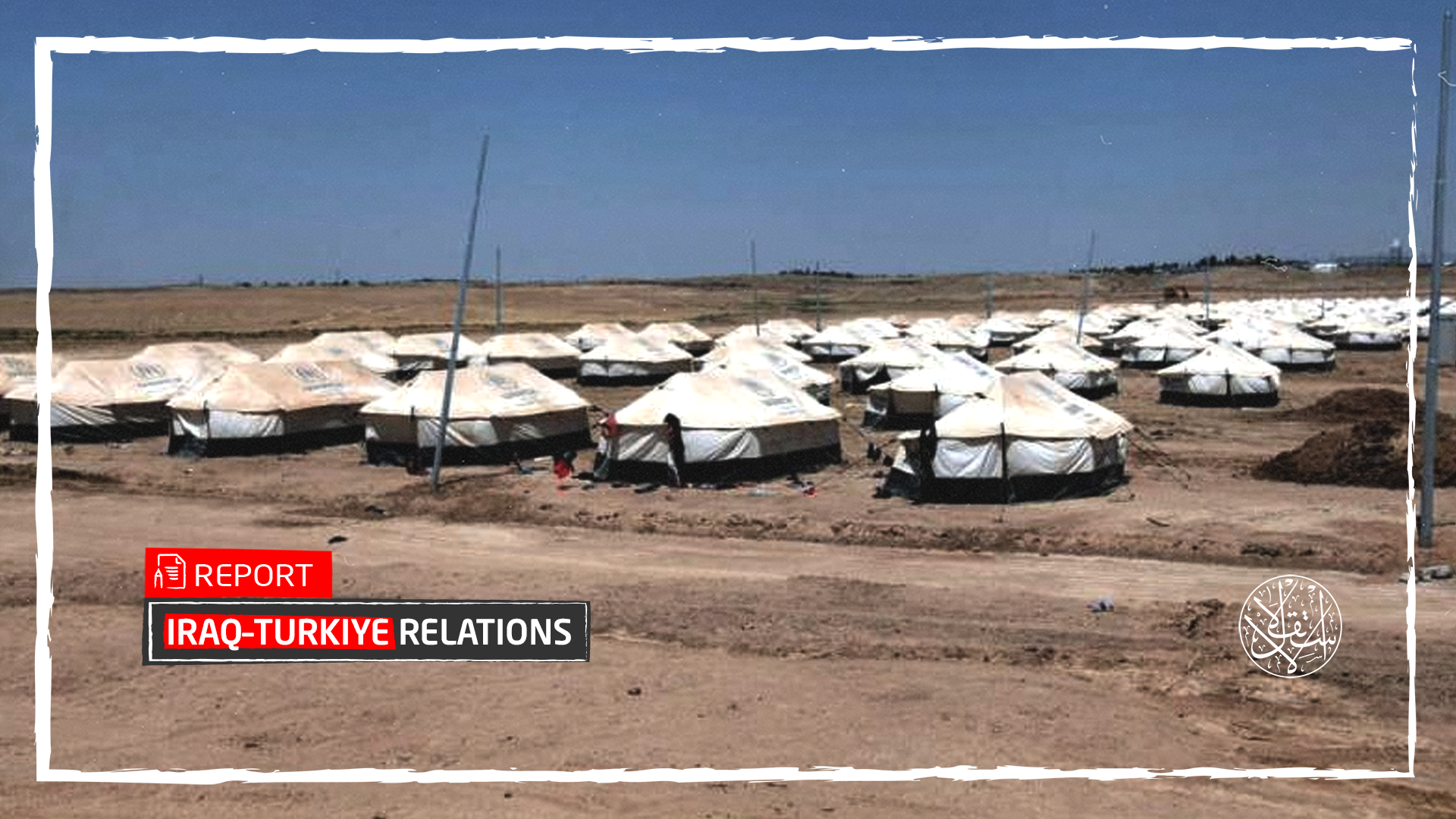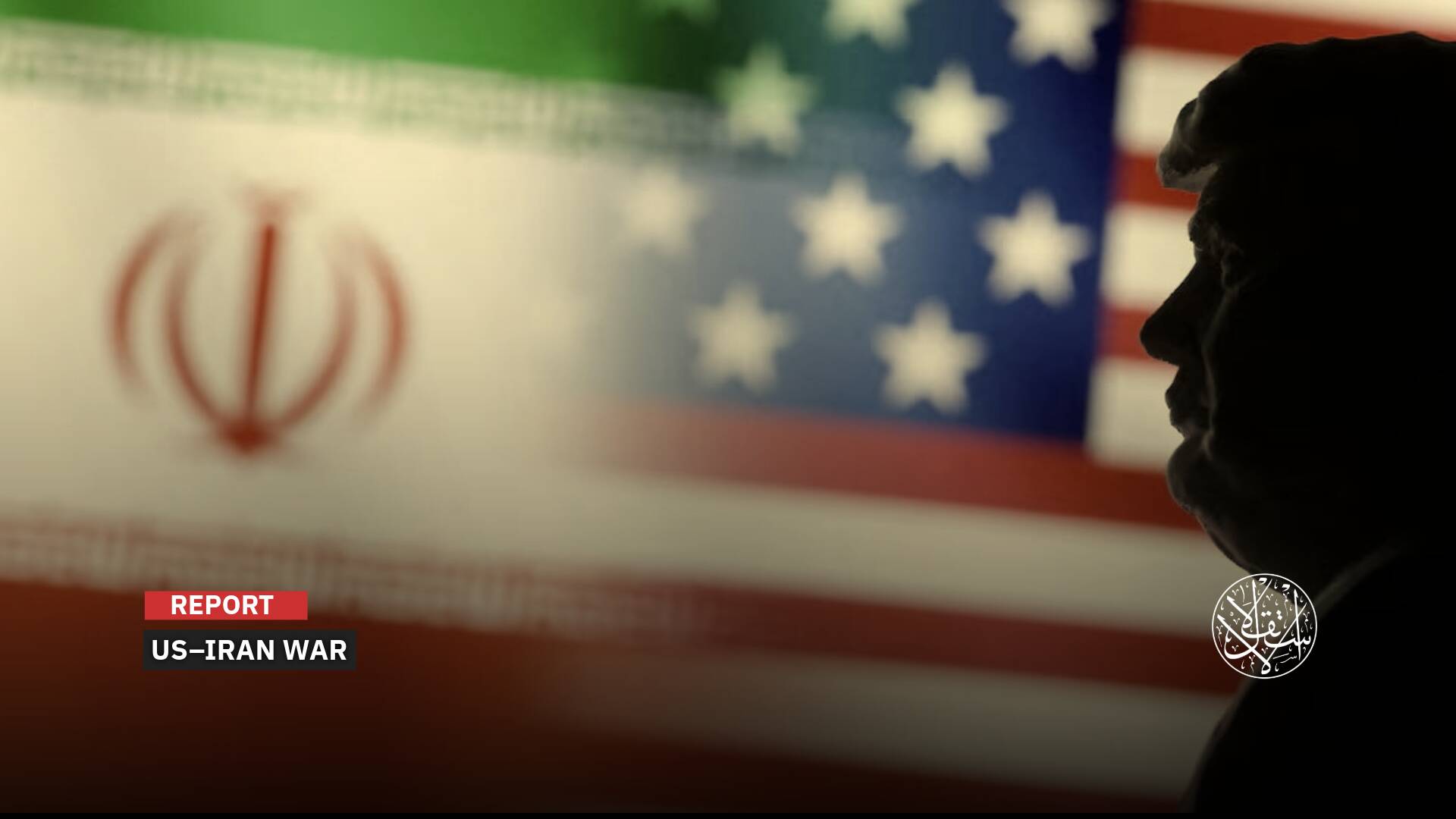Iraqi Security Forces Raid of Makhmour Camp: Does it Improve Relations with Turkiye?

The Center for Middle Eastern Strategic Studies (ORSAM) shed light on the steps taken by the Iraqi government to achieve security in the Makhmour refugee camp and its significance in relation to the Kurdistan Workers' Party (PKK).
The Iraqi government attempted to gain control over the Makhmour camp, located approximately 105 kilometers southeast of Mosul and around 70 kilometers west of Erbil, and deployed security forces to the area in May 2023.
However, the residents living in the camp organized protests, which led to the withdrawal of the Iraqi security forces, although other sources suggest that the operation is ongoing.
At the end of May, the Iraqi army initiated an operation to dig trenches and establish security checkpoints around the Makhmour camp, which houses hundreds of families of PKK militants opposed to Ankara. The camp is located on the border between the Nineveh and Erbil governorates.
Local sources indicate that the camp accommodates over 1,500 families of Turkish Kurds, who are relatives of PKK militants opposing Ankara.
Practical Steps
According to the Turkish center, it appears that the Iraqi government, which had not taken any steps regarding this issue for a while, has now taken another step against Makhmour.
On May 20th, a delegation from the Iraqi government accompanied by security forces visited the area and met with a delegation from the camp.
According to local media reports, the Iraqi government presented four conditions to the local residents responsible for the camp, which are as follows: Closing the camp with wire fences and ensuring security by the army and police, ensuring entry and exit from the camp through a single road, closing the roads with concrete barriers, and requesting the return of local police to the camp.

The Iraqi government issued a statement stating that these steps aim to ensure the safety of those present in the camp, as it has become a center for ideological indoctrination, with the presence of the terrorist Kurdistan Workers' Party (PKK) organization.
According to official figures, the designated terrorist organization has gained full control over all areas of the camp, where approximately 13,000 people reside.
According to ORSAM, the PKK is attempting to control the lives of every individual in the camp, shaping them from birth until death.
The camp has become a hub for armed production and propaganda for the Kurdistan Workers' Party.
In addition to the ideological and tactical training provided in schools and training centers here, the organization recruits fighters through various non-governmental organizations established in almost every field.
This radicalism should not be limited to the formation of armed forces; there is extremism in almost every field, from politics to culture, which will support the terrorist organization.
Makhmour Importance
Recently, the Makhmour camp has gained much greater significance for the Kurdistan Workers' Party (PKK) due to Turkish military operations in northern Iraq, in addition to targeted operations against individuals in key locations for the PKK, which resulted in significant territorial losses and support reduction.
Turkiye's effective struggle in northern Iraq, especially along the border, has severed communication in the northern corridor extending from Sinjar mountain, which is considered a center for the terrorist organization, to Syria.
The Kurdistan Workers' Party attempted to establish aerial communication with the support of the United States and the Kurdistan National Union after failing to do so from the ground.
This situation was revealed clearly through the helicopter crash in Duhok on March 15, in which ammunition was onboard, and seven people were killed. The identity of the helicopter was unknown.
At that time, the Turkish Ministry of Defense denied claims on social media about the downing of a helicopter belonging to its armed forces in northern Iraq.
Online websites and social media accounts affiliated with the PKK organization posted allegations of the fall of a helicopter belonging to the Turkish army in the Duhok area of northern Iraq.
At this stage, the logistical lines of the Kurdistan Workers' Party in the northern corridor were also disrupted.
For this reason, it is known that the PKK is trying to establish communication and support with its affiliated structures in Syria through the Qandil–Sulaymaniyah–Kirkuk–Makhmour–Mosul–Tal Afar–Sinjar route.
Recently, it has been observed that the actions and movements of the Kurdistan Workers' Party have increased in and around Kirkuk. The presence of the Kurdistan Workers' Party in this area is not new.
Nevertheless, it can be said that the Iraqi government, which has dealt with serious political, security, and economic crises in previous periods, remained "ineffective" in the presence of the Kurdistan Workers' Party in Iraq.
However, it seems that the Iraqi government has shown a more determined and prepared stance to combat the Kurdistan Workers' Party compared to previous periods.
This stance of the Iraqi government has an impact on positive developments and stability in Iraq's domestic politics, as well as the Kurdistan Workers' Party's attempt to impose dominance over cities.
In addition to Syria, the Kurdistan Workers' Party organization is also trying to implement the "self-governance model" of its leader Abdullah Ocalan (imprisoned in Turkiye) in Iraq. Therefore, Sinjar and Makhmour are the two main centers.
Ameliorating Relations
In this stage, the government, which has gained momentum within a period of six months after its formation under the leadership of Mohammed Shia' al-Sudani in Iraq, is striving to achieve complete sovereignty politically, geographically, militarily, and economically.
In fact, emphasizing "Iraqi sovereignty" has become the most popular discourse in Iraq recently.
Therefore, it aims to prevent external factors from hindering the positive momentum in the country. The statement issued by the Iraqi government regarding the situation in Makhmour was noteworthy, stating that the measures taken by the security forces aim to ensure the safety of everyone in the camp against the unlawful acts of certain parties that destabilize the country and harm Iraq's security.

On the other hand, it cannot be ignored that the concrete steps taken by the Iraqi government against the Kurdistan Workers' Party (PKK) have also had an impact on the existing good relations with Turkiye.
After Iraqi Prime Minister Mohammed al-Sudani's visit to Turkiye in February 2023, expectations for improved bilateral relations have increased.
Turkiye's position has become more significant regarding the development Corridor Project, which will complement the Grand Faw Port Project, one of the most important projects for Iraq's future. This project includes railway and land routes that will extend from this port to the Turkish border.
At this stage, the beginning of Iraq increasing its cooperation and taking tangible steps regarding the PKK issue became obvious.
In fact, it is known that the Iraqi government has started establishing a Border Guard Force not only regarding the Makhmour issue but also to protect the borderline.
However, in the war against the organization, it seems that Makhmour represents an important test for Iraq. If control over the camp is regained, Sinjar may be on the agenda again in the next phase.
From this perspective, if the Iraqi government succeeds in containing the Kurdistan Workers' Party on its territory, it will make a positive contribution to its internal stability, regional security, and the relations with Turkiye.










